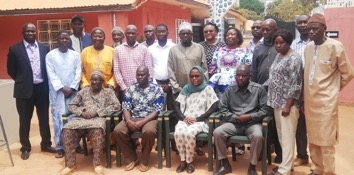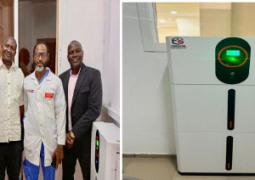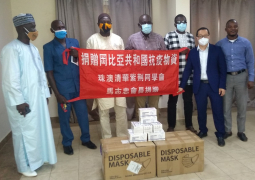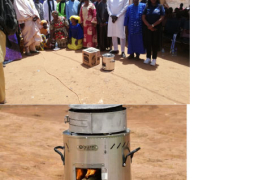
The training currently underway at the Baobab Holiday Resort, seeks to close existing gaps by aligning their agriculture process, plans and policies for the development of the sector in member countries.
At the ceremony, Fatmata Seiwoh, ECOWAS/CAADP Monitoring and Evaluation officer at the Directorate of Agriculture, ECOWAS Commission, reminded that one of the mandates of the commission is to support member countries as different policies are concerned.
“So, within the agriculture sector, we have what we call ECOWAS Agriculture Policy and that policy emanates from the Comprehensive African Agriculture Development Programme (CAADP). The ECOWAAP emanates from the CAADP as a continental initiative. So as a region, we have mandates to monitor and manage the agriculture policy at regional level.”
To make sure that the policy is well-guided, managed and implemented, Mrs Seiwoh outlined the need for all 15-member countries to align their agriculture process, plans and policies with ECOWAAP.
She reminded that since 2003 going forward, each country has a national agricultural investment plan, saying these national agriculture investment plans are aligned ECOWAS agriculture polices.
The commission, she added, also has a mandate to work closely and support member countries to better plan and implement whatever programmes and projects they come up with to support their investment plan.
She recalled that in 2021 with funding from European Union, the ECOWAS Directorate of Agriculture hired a consultancy firm to help determine the status of designed implementation of each of the 15 countries’ agriculture investment plans.
“It was from that study we discovered that there a lot of gaps and as an institution if we want to support countries, we need to do further analysis.”
Also speaking, Frances Mendy, director of Planning at the Ministry of Agriculture, on behalf of the Ministry, thanked the Commission for the foresight and travelling to train stakeholders on this important forum.
Mendy underscored the importance of data in any agriculture development, saying agricultural statistics is one of the most significant data that every country needs in terms of measuring the sector’s performance on Gross Domestic Product. “Therefore, strengthening the data system by modernizing production and use of agric statistics data is very relevant and important.”
He used the forum to outline the importance of agriculture statistics in the country’s development especially in giving policy directives, acknowledging that the population in Sub-Saharan Africa are mainly into agriculture.
This, he added, shows the importance and why the sector is a priority for most countries including The Gambia.




